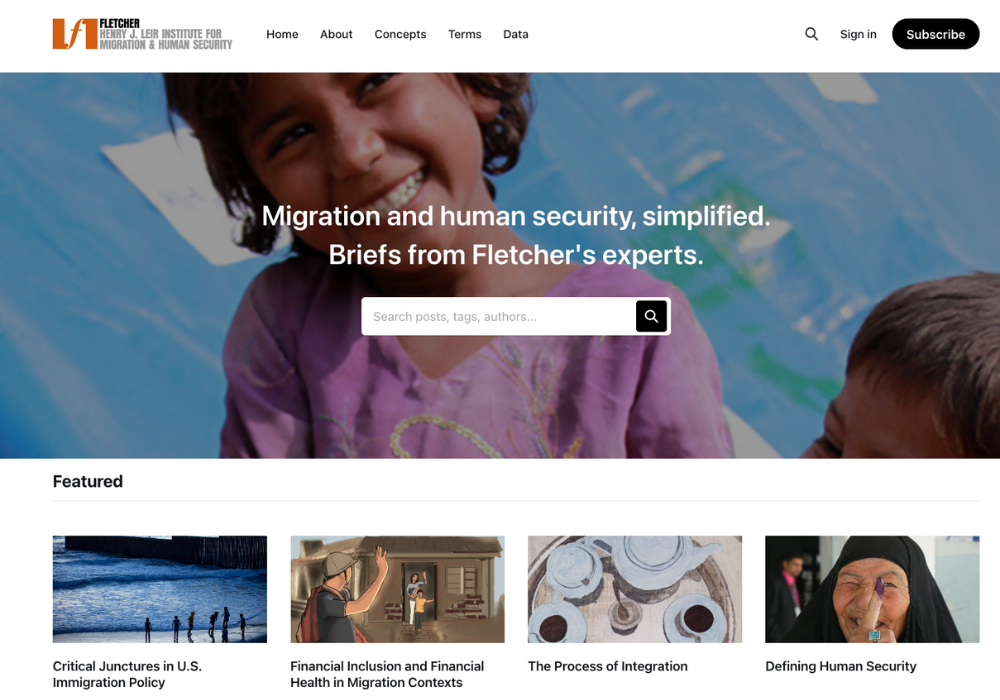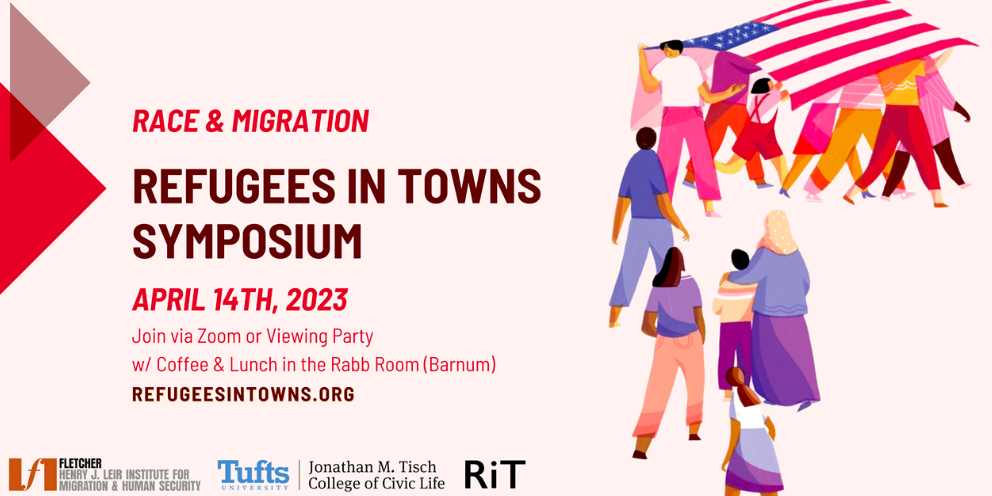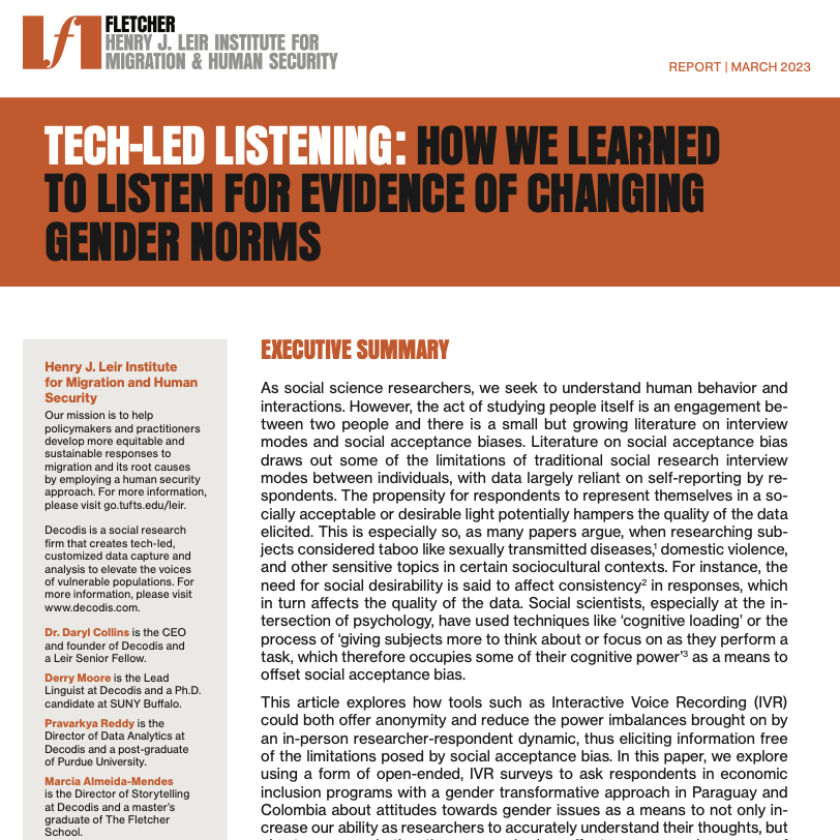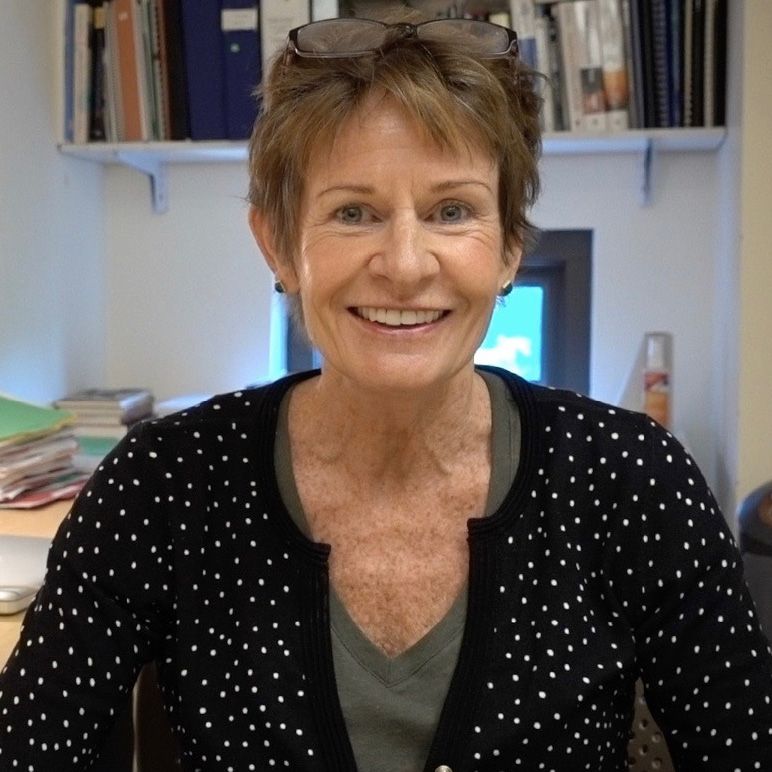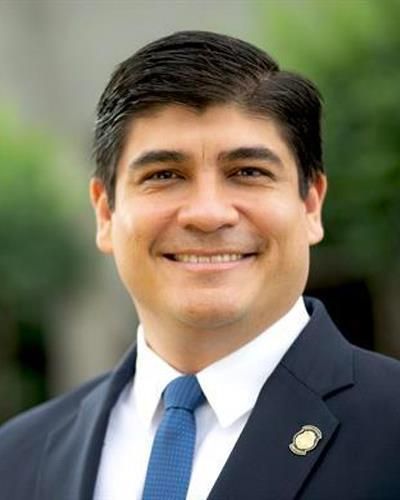Leir Migration Monitor: April 2023
Introducing the Leir Briefing Room
Migration and human security, simplified.
3-minute briefs authored by the Fletcher School’s expert faculty. Key terms and data essential to our work. For clear, concise content, start here.
The Leir Briefing Room is an information clearinghouse on the foundational topics in migration and human security, including root causes. Populated by our expert affiliated faculty, it serves as a trusted source of information that contextualizes the challenges and opportunities policymakers and practitioners face. We look forward to continually updating this clearinghouse with timely and relevant terms, briefs, and data.
RIT Symposium takes ground-up view on race and integration
Virtual event will convene refugees, practitioners to explore resettlement programming that promotes racial understanding
“We’re hoping this is a space where practitioners, advocates, and educators can come together to discuss solutions,” said research assistant and co-organizer Lucy Mastellar, “as well as a space for refugees to talk about their own experiences and understand their voices are heard and their concerns will be addressed.”
Your support enables our work toward more equitable,
sustainable immigration policies.
The Leir Institute’s research is powered by our generous supporters. Your gift allows us to advance our innovative, policy-relevant research in pursuit of a world where migration is a choice. By making a gift, you’ll also help train the next generation of activists, policymakers, and practitioners.
Tech-Led Listening: How Interactive Voice Recording upends the “researcher/researched” power dynamic
Senior Fellow and Decodis founder Dr. Daryl Collins details her pioneering methodology, which enables remote, scalable qualitative data collection and analysis
The tech-led methods helped get in-depth and ‘honest’ responses from participants as it afforded both anonymity and a sense that they were speaking to a ‘peer’ rather than a researcher. Most importantly, because it can be done quickly and inexpensively, it can be used as an early (and continued) assessment of social programming, allowing for course correction. Read the report here.
Faculty Spotlight: Kim Wilson
Kim Wilson is a Sr. Lecturer and Principal Investigator of the Journeys Project. The Fletcher School recently profiled her work examining the ways migrants finance their journeys, both in the formal and informal economy, through financial biographies.
“The goal is to honor the whole story of somebody. Usually when you’re writing an essay report or article, you’re cherry-picking what supports what you want to say,” said Wilson. “…We’re trying to synthesize. We’re trying to analyze. And we’re trying to preserve the entire story.”
The Hill Op-Ed: What Biden’s deeply troubling asylum limit means for the economy
Carlos Alvarado Quesada, Former President of Costa Rica & Affiliated Faculty
“As the former president of Costa Rica, I experienced this firsthand, and I am proud of our efforts to welcome our Nicaraguan sisters and brothers fleeing Daniel Ortega´s oppressive regime. With this new asylum proposal, countries like Costa Rica in the case of Nicaragua, or Colombia, which has provided stability for more than 2.5 million of the more than 7 million Venezuelans forced to flee during the last 7 years, will be forced to bear even greater burdens. Burdens for which they are ill prepared to deal, and which would deepen polarization around migration. In Costa Rica’s case, I fear such an approach would make the country less welcoming, fueling xenophobia and further displacement.
“Instead, the region needs faithful and forceful implementation of instruments like the LA declaration, including rallying greater multilateral development financing for migrant integration and regularization efforts throughout the region. It also needs to build responsible labor pathways to maximize the economic opportunity the current moment presents.”

